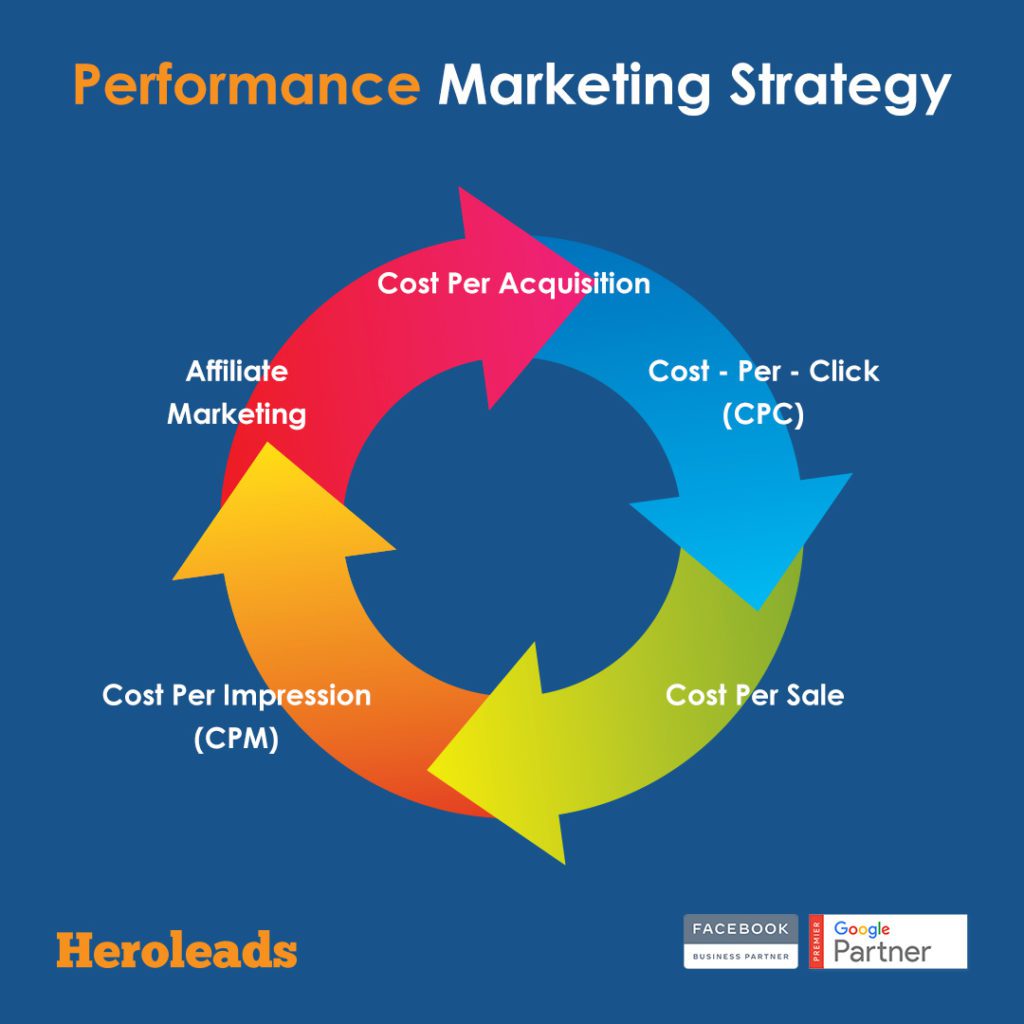Digital Marketing and Performance Marketing

In the last decade, digital marketing has come a long way. It’s now more crucial than ever for businesses to find their target audience and connect with them on an emotional level, as well-saturated social media platforms make it easier than ever before!
Performance Marketing takes these strategies one step further by using data from validated measurements (such as website traffic or sales), so you know what works best when it comes down to time management – which means fewer guessing games about conversion rates!
What is digital marketing, and what are its advantages?
Digital marketing is an incredibly powerful tool that can be used for many things. One of the main advantages is to use it over traditional forms such as TV ads or print advertisements. The ability to reach a targeted audience in droves without breaking your budget! With all these benefits at hand, who wouldn’t want some help to reach their customers more efficiently than ever before?
The benefits of digital marketing include:
- Digital marketing provides an easy way to reach new markets and trade globally. With a well-planned digital marketing campaign, You can find customers with just the right demographics at lower costs than traditional methods allow for!
- Digital advertising allows brands to reach the right customers at a much lower cost than traditional marketing methods.
- You can measure the effectiveness of your marketing campaign from the beginning to the end. You’ll know exactly how customers are navigating through and interacting with each stage to not only retain customer loyalty but also make an additional purchase or lead.
- The content you create can gain social currency – being passed from user to user and becoming viral. This is an engaging way of marketing because the more people that view your posts, the better chance there will be for them to get noticed by others in their networks, who could then pass on what they saw even wider than before!
What is performance marketing?

Who doesn’t aspire to exceptional performance?
You have probably heard the term performance marketing, but what exactly does it mean, and why should you care?
Performance marketing is a solution to one of the biggest marketing challenges we face nowadays. Brands frequently struggle to determine which efforts produce positive results for their organization.
Attribution is the act of directly linking an effort to its outcome.
Marketers lay out their marketing measurement hierarchy, attribution for all of a brand’s marketing channels is a critical step toward getting a holistic view of how and why a customer buys. This understanding helps you optimize the customer journey, which is the path that starts with their first exposure to your brand and ends with the sale.
This year, more and more people have turned to Performance Marketing as their online advertising strategy. It’s an innovative approach that can help you generate leads for your business by targeting ads at specific audiences on social media platforms like Facebook or Instagram based on keywords they’ve inputted into search engines before clicking go. There are even tools available now which will automatically optimize performance-based searches depending upon what content users most often engage with it?
Performance Marketing Campaigns are the new way to increase your “ROI”. It is an innovative approach that allows marketers and advertisers alike, not just those in the search engines.
It means you can use it for your web design services as well, performance-based advertising will help with tracking results.
Google Ads, websites, and social media platforms such as Facebook and Twitter are some of the most popular channels for Performance Marketing Strategy. Performance Marketing Strategy is result-oriented. It may be the future trend in online marketing or digital marketing.
Here are some of the Performance Marketing Strategies implemented:

- Cost per Acquisition
In this case, the marketer doesn’t require paying the website or portal any money if no conversion occurs. For example, if it is an event invitation, the user must sign up or register for the event by paying any money in advance. It could also be something as simple as signing up for an email newsletter or downloading a PDF file. The marketer is only interested in paying if the consumer’s data and a definitive web action occur. These campaigns ensure that more visitors come to the website, that more potential customers are acquired, and that the company can target potential customers geographically.
- Cost per sale
You will pay only once an actual sale is done through the ads link in this strategy. It’s ideal for small businesses that do not have large budgets for market promotion or branding. - Cost Per Click (CPC)
Consider a situation in which the advertising is nearly entirely focused on results—that is CPC for you. The website or search engine (Google Ads program) only charges for clicks that lead to your website, a landing page, or a call-to-action such as a buy or a register. The benefit of such a strategy is that if the cost per click is 10 pence, the marketer will only need to pay $10 to generate 100 clicks. You can buy a set number of clicks for a set period, as in a CPM campaign, and the campaign will end when the set number of clicks is reached. - Cost per impression (CPM)
Sometimes the purpose of web ads is a combination of branding and actual sales conversion. The rate is quoted per thousand impressions in the CPM strategy. An impression is a unit defined by a user viewing a page on a desktop, laptop, or mobile device, but it does not imply that the user has read it.
CONCLUSION
It’s never too late to get started with performance marketing whether you are launching a new product or promoting an existing one, this strategy should be an essential part of any successful business plan, this type of strategy will help get the word out about what it has to offer and make customers want more!
While compared to traditional marketing methods, the Performance Marketing strategy has the advantage of being highly trackable, measurable, and flexible. Based on campaign results – the number of impression clicks received from various age groups, geographical regions, gender, and interests – marketers can fine-tune their online promotion strategies for the future, potentially saving money.